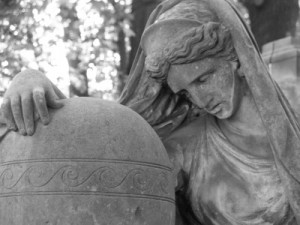…fear.
Over the years, I’ve talked to many people to hear their stories and find out what makes them tick. The people closest to me know that, in many ways, I’m the type of writer that studies human nature. The one thing that most writers have in common is this: fear.
There are hundreds of ways that fear manifests in a writer’s life. Hundreds. Some of us might stop writing altogether. Others might hang out at conventions with authors or get caught up in reviewing books. Being around other writers doesn’t help you write.
So, what does?
Well, that’s different for everyone. Me? I have quite a few things that I do to keep me motivated and help me focus on my writing. I use a timer. I set goals. I visualize. I do something bold. I paint. I write poetry. I review old stories and commit them to my morgue.
The one thing, though, that I never want to do — ever again — is stop writing. I did, because I threw everything into a full-time career and it didn’t pan out. Yes, writing fiction that may or may not pay is something that all writers have to balance with their paying gigs, but really? Really? I know several successful authors that deal with a lot more than I do. Five kids. Cancer. Bankruptcy. Unemployment. Rabid fans. And that’s just to name a few.
In the end, while our fear may manifest in different ways, the only way to move past it is to get your butt back in that chair and keep writing.
So stop being a chicken. Seriously. Be bold. Be Brave. Just write. Write, submit, edit and then do it all over again. What? You want to be a writer, don’t you?

 Lately, I’ve been obsessing about semantics, how we choose our words, and what effect a personality type has on both. Take self-promotion just as an example. To tell an introvert to get out there and “Sell yourself!” might make someone feel uncomfortable. Turn that around for a second and say something like, “Help someone know more about you.” Same thing. Different words.
Lately, I’ve been obsessing about semantics, how we choose our words, and what effect a personality type has on both. Take self-promotion just as an example. To tell an introvert to get out there and “Sell yourself!” might make someone feel uncomfortable. Turn that around for a second and say something like, “Help someone know more about you.” Same thing. Different words. Some writers refer to their unpublishable work as “trunk novels” or “trunk stories.” For my broken stories, I kill them and then send them to my virtual morgue, which is a folder on my computer.
Some writers refer to their unpublishable work as “trunk novels” or “trunk stories.” For my broken stories, I kill them and then send them to my virtual morgue, which is a folder on my computer.